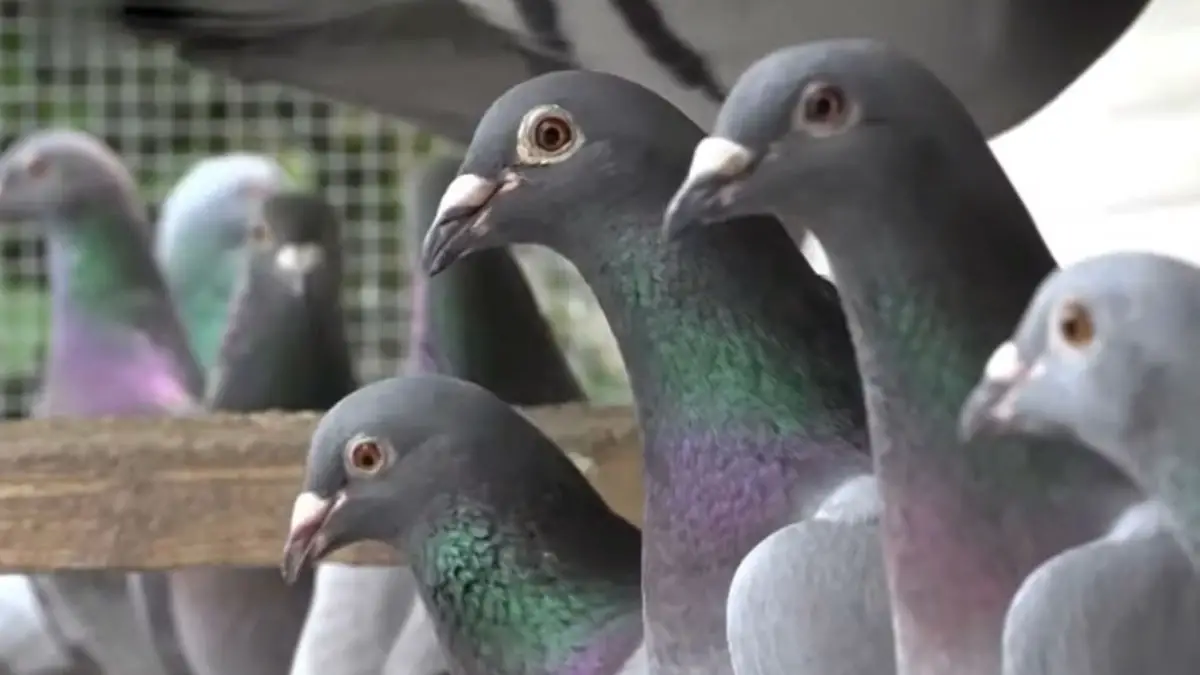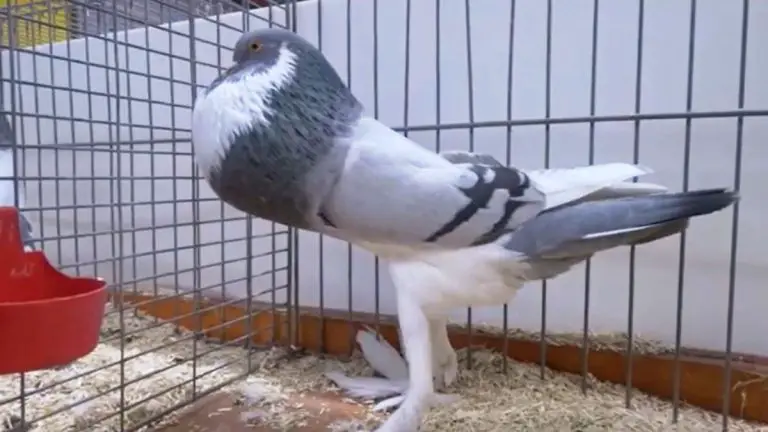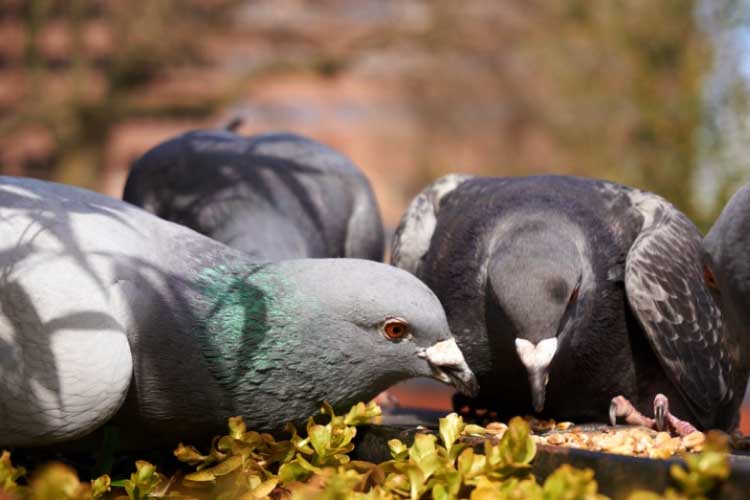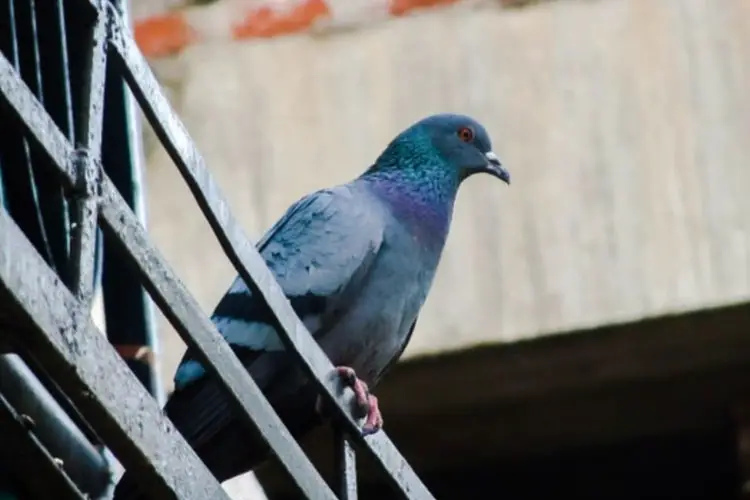How to Treat E. coli in Racing Pigeons? – Guide to Combating the Virus in Racing Pigeons
Preventing and treating E. coli in racing pigeons is challenging. The reason is the lack of clear guidelines and the unique challenges of managing flock health.
How to Treat E. coli in Racing Pigeons? Although diagnosis can be challenging, you have options include necropsy, serological testing, or cloacal swabs. Antibiotic treatment is often the most effective approach for addressing this deadly bacteria.
In this article, we will discuss the treatment procedure of E.Coli for racing pigeons. We will also talk about the symptoms of E. Coli, prevention methods, health maintaining of the racing pigeons. Read on to learn more.
Symptoms and Causes of E. coli Infections in Racing Pigeons
Escherichia coli infections are a serious concern for racing pigeon owners. Escherichia is a normal bacteria in birds, but it can grow and spread when birds are stressed. It also happens when birds are poorly fed or in overcrowded conditions.
The causes of ecoli infection in bird very normal. Birds that interact with contaminated food, unsanitary conditions, or infected animals become infected with the coli bacteria.
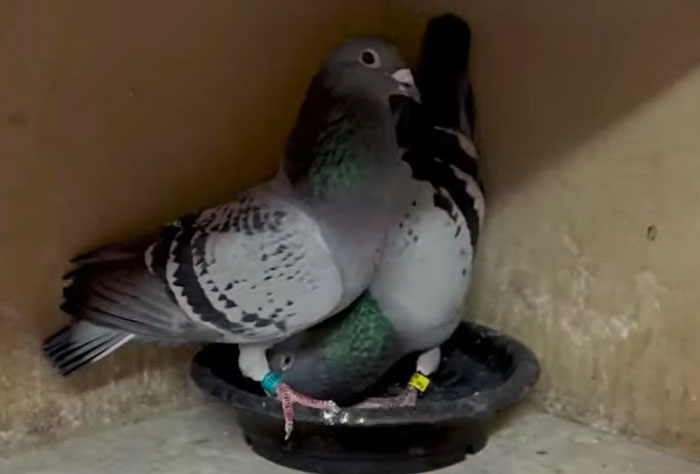
E. coli infections lead to a range of symptoms, varying from mild to severe. Presented below is a detailed description of some of the most commonly observed symptoms.
Diarrhea
Diarrhea is the most common symptom of this infection. Other than that, this deadly infection can cause green or yellowish loose droppings. Pigeons with diarrhea may also have reduced appetite, dehydration, and electrolyte imbalances.
Weight loss
This infection caused by a specific type of bacteria can result in a gradual reduction in body weight in birds. As the bacteria’s presence hinders the absorption of nutrients from food.
Reduced racing performance
Another symptom of this infection is reduced speed of flying. So, infected birds may not be able to race as well as their healthy counterparts.
Inactivity
Pigeons with Escherichia coli infections may appear tired and depressed. They might not want to hang out with their buddies. And they would rather nap all day.
Lameness or dropped wing
Escherichia coli infections can cause joint inflammation or nerve damage in birds, leading to lameness or a dropped wing. This can cause the bird to move awkwardly, have difficulty flying, or exhibit unusual wing movements.
Reduced egg production
Female pigeons with this infection may lay fewer eggs or have poor-quality eggs. Eggs can sometimes be broken or fragile when they are extracted. So they might need a little help with their eggcellent egg-laying skills.
Sudden death
In some cases, this infection can cause sudden death without any visible symptoms.
Diagnosis and Treatment Options for E. coli Infections in Racing Pigeons
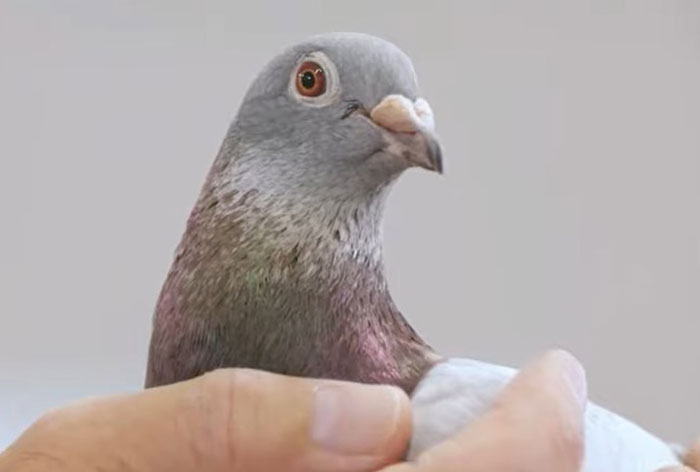
Here, we go over the two aspects of treatment and diagnosis separately.
Diagnosis for E. coli Infections
Diagnosis options vary depending on the type of disease. Early detection of this infection is crucial for preventing the further spread of the disease and maximizing the chances of successful treatment.
- Necropsy: In severe cases of infection, a necropsy (autopsy) may be necessary to confirm the diagnosis. During a necropsy, a veterinarian will examine the bird’s body to look for signs of infection. This can include inflammation of the respiratory system or lesions in the digestive tract.
- Serological testing: Serological testing examines blood samples for antibodies to Escherichia bacteria. This helps identify past exposure.
- Cloacal swabs: Cloacal swabs collect samples from the bird’s cloaca. And try to identify the presence of Escherichia coli in the gastrointestinal tract.
- Molecular diagnostics: Molecular diagnostics, such as PCR, can detect E. coli DNA in a sample, even if the bird is not showing clinical signs.
- LAMP (Loop-mediated isothermal amplification): LAMP is a rapid and sensitive molecular diagnostic method that can be used to detect E. coli DNA in birds.
- Histology: It is possible to diagnose infections or other diseases in birds and other animals using histology. This is the study of tissue structures under a microscope.
- Isolating Enterococcus: Growing and identifying Enterococcus bacteria from a sample of a bird’s body is required to isolate Enterococcus. This type of testing can help diagnose Enterococcus infections and determine the best treatment options.
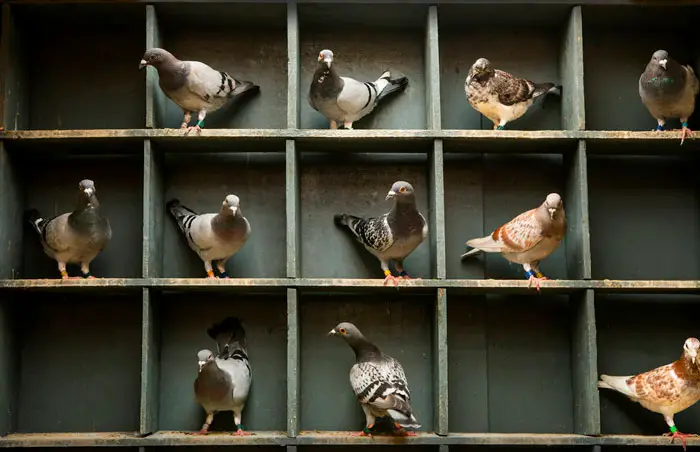
Treatment Options for E. coli Infections
When it comes to treating this special infection, prompt intervention is key. This often involves the use of antibiotics to control the bacterial infection and supportive care to aid in the bird’s recovery.
To prevent the further spread of the disease, quarantine and disinfection protocols may also be put in place.
Similarly, in cases where Enterococcus has been isolated, a tailored treatment plan is necessary. Antibiotics are chosen based on sensitivity testing to target specific bacteria.
The Role of Antibiotics and Other Medications in Controlling E. Coli Infections
Antibiotics can be powerful tools in the treatment of this sort of infection in birds and other animals. They work by either killing the bacteria causing the infection or by preventing their growth.
However, it’s important to note that antibiotics are not effective against all types of bacteria (in case of antibiotic-resistant bacteria). In addition, overuse can lead to the development of antibiotic-resistant strains.
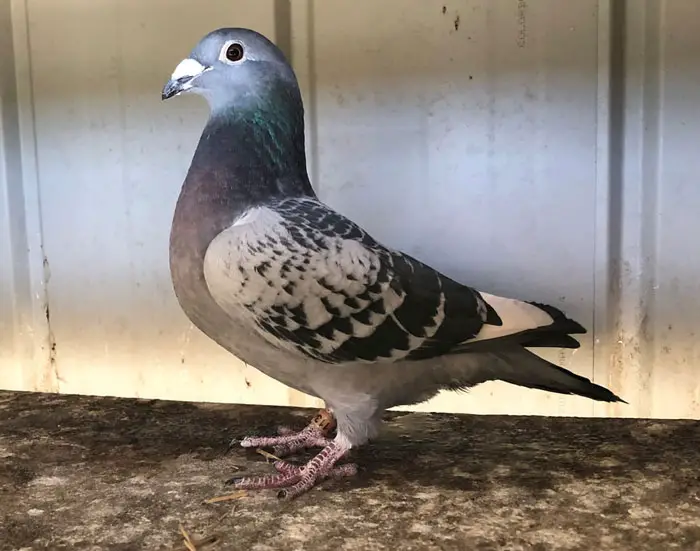
In the case of birds, antibiotics can be administered orally or by injection. To control the symptoms of this infection, veterinarians may also recommend the use of anti-inflammatory drugs and electrolyte solutions.
It’s important to use medication like antibiotics carefully so that bacteria don’t become resistant to them.
Preventing the Spread of E. Coli and Other Bacterial Infections in Racing Pigeons
Prevention of the spread of E.coli and other bacterial infections can be easily achieved by following these instructions.
- Vaccinate your birds: Consult with your veterinarian to determine the appropriate vaccination schedule for your birds.
- Quarantine new pigeons: Isolate new birds for a period of time before introducing them to the flock to prevent the spread of any potential infections.
- Practice good hygiene: Regularly clean and disinfect the pigeon loft and equipment used for feeding, watering, and housing the birds. Also, wash your hands thoroughly before and after handling birds, and use dedicated clothing and footwear when working with the birds.
- Always Monitor: Keep a close eye on the birds’ health and isolate any birds that show signs of illness.
- Provide adequate space: Avoid overcrowding the birds and make sure they have enough space to move around.
- Provide a balanced diet: A well-balanced diet with the appropriate amount of vitamins and minerals will help keep your birds healthy and their immune systems strong.
- Avoid overcrowding: Ensure that your pigeon loft has adequate space for the number of birds you have.
- Consult with a veterinarian: If you suspect that your birds have a bacterial infection, contact your veterinarian immediately.
Tips for Maintaining the Health and Well-Being of Racing Pigeons
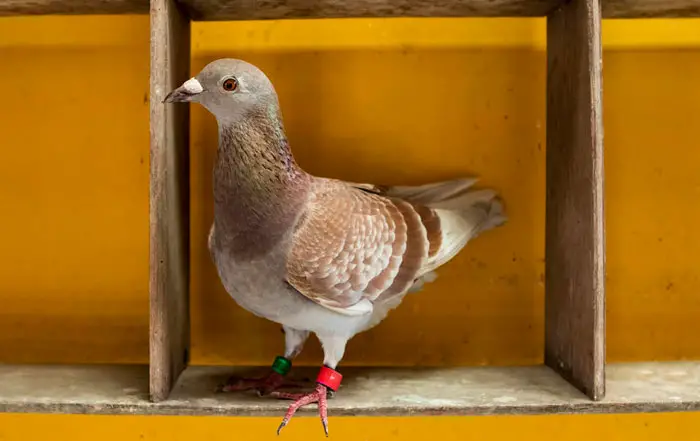
Here are a few general guidelines to maintain the health of your racing pigeons. Every owner of a bird can adhere to these in order to ensure the health and welfare of their pigeons.
- Well-balanced food is a must: Provide a balanced diet with the right amount of nutrients to keep them healthy and performing well.
- Regular health check-ups and vaccination: Vaccinating your racing pigeons the safe way. Schedule routine check-ups and vaccinations with a veterinarian to keep your bird healthy.
- Keep living area neat: Regularly clean and disinfect the living area to reduce the risk of disease and maintain a healthy environment.
- Don’t let them meet with random birds: Avoid contact with other birds to prevent the spread of diseases that can be picked up from other flocks.
- When sick, isolate them: If a bird shows signs of illness, isolate it immediately to prevent the spread of disease to other birds in the flock.
Conclusion
We assume now you know “how to treat E. Coli in racing pigeons?” Taking good care of your birds’ health is essential for their well-being. It’s important to detect bacterial infections early, give them the right treatment, and take steps to prevent more infections.
Owners of racing pigeons should work with vets to make a health plan that fits their bird’s needs. This plan should include check-ups, keeping the bird’s home clean, and using antibiotics the right way. By doing this, pigeon owners can help their birds stay healthy, race longer, and keep the sport going strong.
